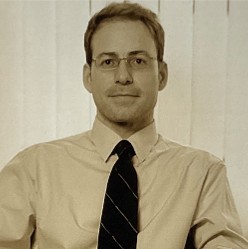October 01, 2025
Mark Gierl: Noted Expert in Educational and Psychological Measurement and Automatic Item Generation
Subscribe

Dr. Mark Gierl is a Full Professor in the Centre for Research in Applied Measurement and Evaluation (CRAME) and Program Coordinator in Measurement, Evaluation, and Data Science (MEDS) in the Department of Educational Psychology, Faculty of Education, University of Alberta. He is also the President of MGHL Partners, which provides training and software services to testing organizations seeking to implement automated item generation. In addition, Mark holds the Canada Research Chair (Tier 1) in Educational Measurement. He earned a B.A. (Honours) in Psychology and an M.Ed. in School Psychology from the University of Alberta, as well as a Ph.D. in Educational Measurement and Evaluation from the University of Illinois at Urbana-Champaign.
Professor Gierl served as Assessment Resources Officer (Psychometrician) in the Student Evaluation Branch of Alberta Education before joining the University of Alberta in 1997, initially as an Assistant Professor, then as Associate Professor, and in 2006, as a Full Professor. In addition to these roles, he has served as coordinator of Measurement, Evaluation and Cognition (MEC) in the Department of Educational Psychology, Faculty of Education, University of Alberta; visiting scholar at the College Board (New York) and at American College Testing (ACT) in Iowa City, Iowa; adjunct professor in the Department of Surgery, Faculty of Medicine and Dentistry, University of Alberta; and co-director and director of the Centre for Research in Applied Measurement and Evaluation (CRAME). Over the years, he has received numerous contracts and research grants (as Principal Investigator, Co-Investigator, or Collaborator) to explore a range of topics, including automated item generation and automated essay scoring, his two primary areas of research interest. He has co-authored and edited two books on the subject of automatic item generation: Automatic Item Generation: Theory and Practice (2013) and Advanced Methods in Automatic Item Generation (2021). In addition, he has authored numerous book chapters and peer-reviewed articles. Mark has received several awards for his record of scholarship and teaching and has been granted multiple patents for systems, primarily related to automated item generation and manufacturing processes.
Over the past 15 years, Mark has collaborated with a variety of government agencies, testing companies, and academic publishers, including the National Board of Medical Examiners [USA], Australian Dental Council, Pharmacy Examining Board of Canada, Prometric [US], ACT, Medical Council of Canada, Australian Council for Educational Research, CTB/McGraw-Hill [USA], College Board, Alberta Education, to implement automated item generation principles into their test development practices. He notes that his work primarily involves association-based projects, particularly in the field of health science.
Dr. Gierl served as a technical advisor to Vretta in 2019, collaborating on the development and implementation of the Education Quality and Accountability Office’s (EQAO) online province-wide student assessments. Highlighting the quality of Vretta’s digital assessment solution, he notes the company’s success in securing large-scale, online assessment across Canada’s provinces and territories.
Mark’s current research focuses on automatic item generation and automated essay scoring, highlighting the benefits of using language models for multilingual assessments. He notes that these models enable seamless processing in both English and French, which is particularly valuable in Canada’s bilingual context. Mark identifies the challenges and potential of implementing automated scoring for assessments in Canada. He emphasizes that the main issue is not methodological, but social and political, citing past experiences where such proposals have become controversial. Psychometricians need to be socially savvy to navigate these challenges and effectively explain that the methodologies are both efficient and effective at scoring essays. According to Mark, Canada’s hesitancy and limited funding have contributed to a slower adoption of such technologies compared with the U.S.
Aside from his numerous publications and awards, Mark takes great pride in mentoring students, who have gone on to become successful educational leaders and scholarly researchers. Mark emphasizes that he derives considerable satisfaction from his professional pursuits. Rather than highlighting interests outside of work, he subscribes to the concept of work-life integration (rather than work-life balance), where work and life coincide.

